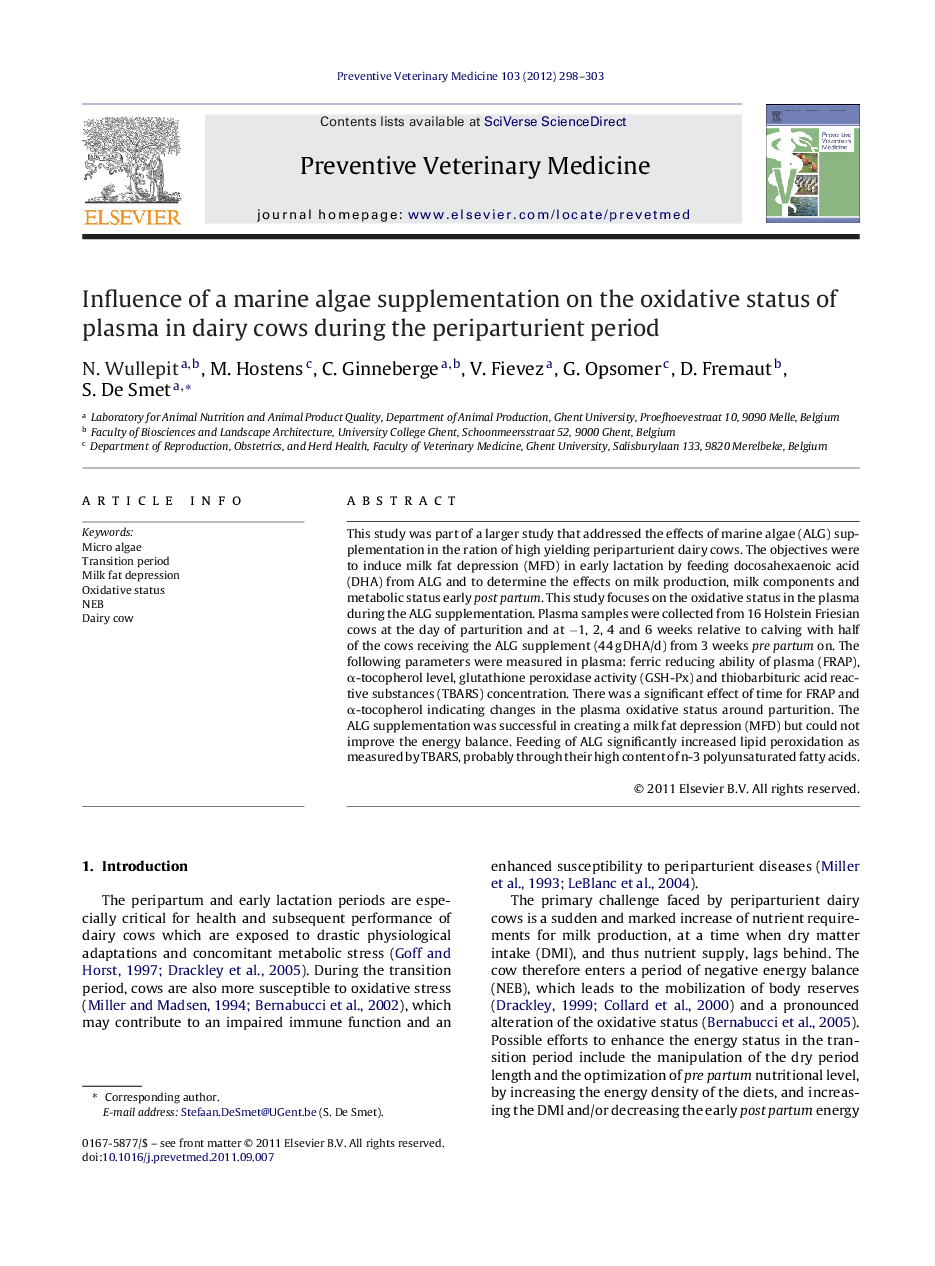| Article ID | Journal | Published Year | Pages | File Type |
|---|---|---|---|---|
| 2452759 | Preventive Veterinary Medicine | 2012 | 6 Pages |
This study was part of a larger study that addressed the effects of marine algae (ALG) supplementation in the ration of high yielding periparturient dairy cows. The objectives were to induce milk fat depression (MFD) in early lactation by feeding docosahexaenoic acid (DHA) from ALG and to determine the effects on milk production, milk components and metabolic status early post partum. This study focuses on the oxidative status in the plasma during the ALG supplementation. Plasma samples were collected from 16 Holstein Friesian cows at the day of parturition and at −1, 2, 4 and 6 weeks relative to calving with half of the cows receiving the ALG supplement (44 g DHA/d) from 3 weeks pre partum on. The following parameters were measured in plasma: ferric reducing ability of plasma (FRAP), α-tocopherol level, glutathione peroxidase activity (GSH-Px) and thiobarbituric acid reactive substances (TBARS) concentration. There was a significant effect of time for FRAP and α-tocopherol indicating changes in the plasma oxidative status around parturition. The ALG supplementation was successful in creating a milk fat depression (MFD) but could not improve the energy balance. Feeding of ALG significantly increased lipid peroxidation as measured by TBARS, probably through their high content of n-3 polyunsaturated fatty acids.
